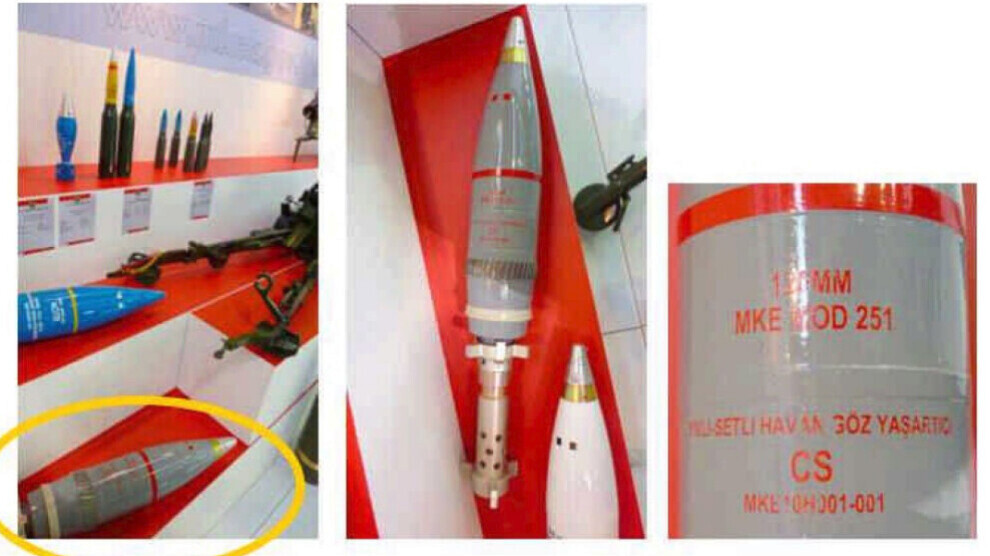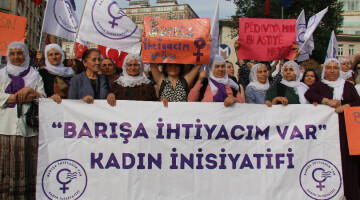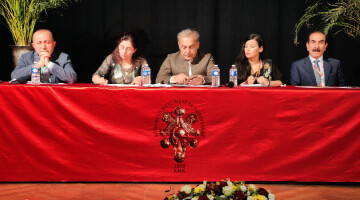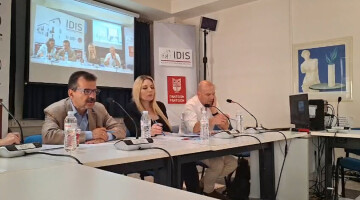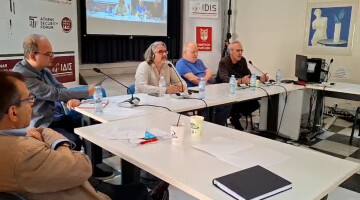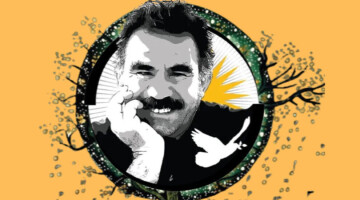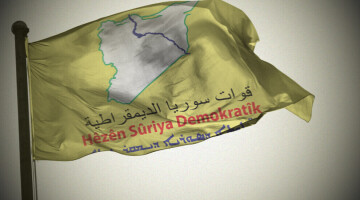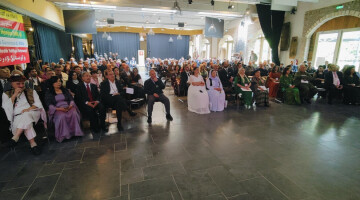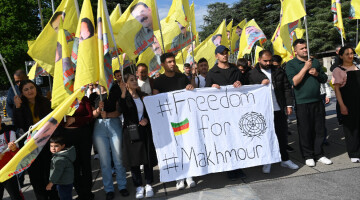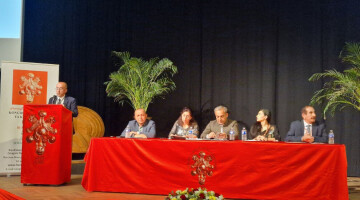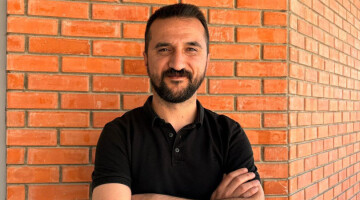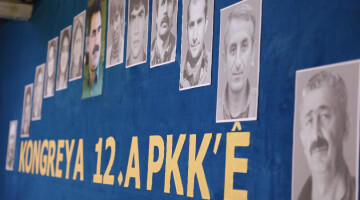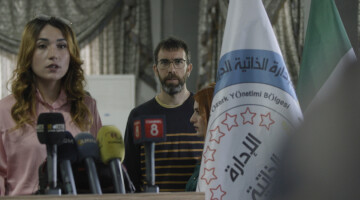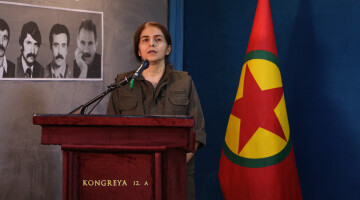While attempting to capture the Medya Defense Areas, the Turkish army has resorted to banned chemical weapons nearly two hundred times in the past few months. Although Turkey signed and ratified the Chemical Weapons Convention, which came into force in 1997, chemical warfare agents have been used since then whenever the Turkish army failed to make progress with conventional weapons. The German federal government, asked about the issue, repeatedly claimed that it had no knowledge of the stocks of chemical weapons in the arsenals of Turkey, while Turkey presented itself quite openly at trade fairs with chemical weapons for use in war.
From the Dersim genocide to the use of chemical weapons against the guerrillas – Germany’s presence has been clear.
Poison gas was a weapon that the Turkish army used over and over again. The most devastating use of poison gas took place in the Dersim genocide in 1938. Poison gas produced in Germany was used on over 70,000 Kurds. When the PKK began the armed struggle on August 15, 1984, Turkey continued to build up its chemical weapons stocks. Circular letters to the army were given "secret orders" to destroy the Kurdish guerrillas with poison gas. These circulars were published at the end of the 1980s. The circular of the Army Command of the Turkish General Staff of February 25, 1986 called for "the use of tear gas and agents that cause vomiting at the discretion". The guerrilla tunnels were to be made unusable by "filling them with poison gas". A document dated July 23, 1989, signed by General Necdet Öztorun, first appeared in the Doğru newspaper in 2000.
Turkish state presents poison gas at fair
Despite the Chemical Weapons Convention of 1997, the Turkish state never saw the need to hide its chemical weapons use and possession. In 2004 a documentary about "anti-terrorist units" of the Turkish army showed how the Turkish army tested the use of tear gas bombs. The footage shows how the Turkish army first throws explosive bombs into a cave and then uses tear gas bombs. Yellow smoke rises from the caves as a result. The use of tear gas is permitted by the police against demonstrations, but prohibited by the Chemical Weapons Convention in the event of war. This is especially true for tear gas in high concentrations, such as in the 120mm CS gas bombs used by the Turkish army.
The Turkish military-industrial complex appears at trade fairs with chemical weapons
Tear gas is potentially fatal in high concentrations and in enclosed spaces. Nevertheless, the Turkish army openly presents itself with precisely such weapons. For example, at the 2010 Cape Town arms fair, Turkey presented banned 120mm CS gas bombs in accordance with the requirements of the Organization for the Prohibition of Chemical Weapons (OPCW).
In the same year, the University of Bradford in the UK reported that the Turkish Mechanical and Chemical Industry Institution was producing 120mm CS gas bombs and offering them for sale on the international market. Despite this document, the OPCW has not initiated any proceedings against Turkey.
Chemical weapons against the guerrillas
An example of the use of chemical weapons is the murder of 20 PKK guerrilla fighters: inside a cave in Şirnak on 11 May 1999.
Video footage recorded by the Turkish army during the clashes that day was released by Roj TV and ANF in 2011. One soldier said in the video: “Our soldiers are currently facing the risk of poisoning. But they march on like heroes. We took a day off, but the gas is still effective.” Turkish soldiers can be seen advancing into the cave under Commandant Necdet Özel, who later became Chief of Staff.
Some bomb fragments from the Ballikaya region were brought to Germany by a reporter and examined by a laboratory. The inspection at the Forensic Science Institute of the University of Munich revealed traces of the CS gas, which was banned during the war, on the fragments. On 27 October 1999, it was shown on ZDF in the television magazine “Kennzeichen D” that the RP707 gas had been sold to Turkey by the Buck & Depyfag company since 1995 with the approval of the federal government.
2010 - Forensic experts see clear evidence of the use of chemical weapons
In September 2009, eight guerrillas were killed in a cave by the Turkish army in Çukurca in the northern Kurdish province of Hakkari. According to eyewitness statements, the Turkish army used poison gas. Photographs of the corpses, which were examined by forensic experts at the University Clinic Hamburg Eppendorf, confirm this information. The forensic experts largely ruled out that the pictures were forgeries and confirmed that the visual findings indicated the use of chemical weapons. The corpses were badly burned. However, these burns were not caused by heat. This could be determined by the fact that the corpses had preserved body hair on the burned areas. This is a clear indication of the use of chemical weapons. In 2010, a delegation from Germany discovered similar cases of such "cold burns" on the bodies of fallen guerrilla fighters in Şemdinli.
36 guerrillas killed with chemical weapons in Kazan Gorge
A similar use of chemical weapons took place between 22 and 24 October 2011 in the Kazan Valley in Çukurca. 36 fighters were killed inside. The cremated corpses lay for days in the morgue of Malatya and clear indications of the use of chemical weapons came to the public. A surviving fighter reported an explosion and subsequent fruit-smelling smoke.
Silence has a political motivation
The federal government and the OPCW turn a blind eye to the well-documented cases. Complaints before the Federal Prosecutor's Office because of violations of international criminal law were also delayed or discontinued due to the “immunity” of those involved, as new cases were ignored by the OPCW. While the use of chemical weapons by the Assad regime or the alleged possession of chemical weapons by Saddam Hussein were turned into war reasons, the same crimes, if committed by NATO partner Turkey, are benevolently ignored.

